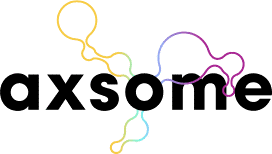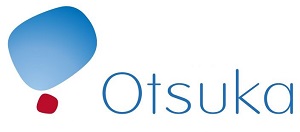Funding Opportunity: Alzheimer's Association International Research
The Alzheimer's Association announces its International Research Grant Program for the 2019 June Program.
Application procedures and key dates are now available, visit alz.org/grants for information regarding eligibility and requirements.
The Letter of Intent is now open and must be submitted online.
Letters of intent must be received by March 8, 2018, 5:00 PM EST.
Alzheimer’s Association Research Grant (AARG) - The Alzheimer’s Association Research Grant aims to fund investigators who are less than 10 years past their doctoral or post residency (MD or DO). The purpose of this program is to provide newly independent investigators with funding that will allow them to develop preliminary or pilot data, to test procedures and to develop hypotheses. The Alzheimer’s Association recognizes the need to increase the number of scientists from underrepresented groups in the research enterprise. Young scientists from these groups are encouraged to apply. Applicants must be Assistant Professors or above at their respective institution.
Alzheimer’s Association Research Grant to Promote Diversity (AARG-D) - The Alzheimer’s Association Research Grant to Promote Diversity program award is up to three years (minimum 2 years) to increase the number of scientist from underrepresented groups at academic institutions in Alzheimer’s or related dementias research. The AARG-D aims to fund investigators who are less than 10 years past their doctoral or post residency (MD or DO). The objective of this award is to increase the number of highly trained investigators from diverse backgrounds whose basic, clinical and social/behavioral research interests are grounded in the advanced methods and experimental approaches needed to solve problems related to Alzheimer’s and related dementias in general and in health disparities populations. The Alzheimer’s Association recognizes the need to increase the number of scientist from underrepresented groups participating in biomedical and behavioral research. The Association anticipates that by providing these research opportunities, the number of scientist from underrepresented groups entering and remaining in biomedical research careers in Alzheimer’s disease will increase. Applicants must be Assistant Professors or above at their respective institution.
Alzheimer’s Association Research Grant - New to the Field (AARG-NTF) –New Requirement - The Alzheimer’s Association Research Grant – New to the Field (AARG-NTF) aims to fund investigators who are new to Alzheimer’s and related dementia field of research. Individuals who are new to the field of neuroscience or neurodegeneration (Alzheimer’s, Parkinson’s, Lewybody dementia, etc) will be considered for this program. The purpose of this program is to provide independent investigators with unique expertise and apply their knowledge to Alzheimer’s and related dementia. This program aims to provide these investigators with funding to establish a research path in Alzheimer’s and related dementia, to develop preliminary or pilot data, to test procedures and to develop hypotheses.Applicants must submit a one page Background and Transition Statement with the Letter of Intent (LOI) and contact the Alzheimer’s Association (alz.org/grants) prior to submitting an LOI for approval.Applicants must be Assistant Professors or above at their respective institution.
Alzheimer’s Association Research Grant to Promote Diversity - New to the Field (AARG-D-NTF) –New Requirement - The Alzheimer’s Association Research Grant to Promote Diversity- New to the Field program award is up to three years (minimum 2 years) to increase the number of scientist from underrepresented groups at academic institutions in Alzheimer’s or related dementias research. The AARG-D-NTF program aims to fund investigators who are new to Alzheimer’s and related dementia field of research. Individuals who are new to the field of neuroscience or neurodegeneration (Alzheimer’s, Parkinson’s, Lewybody dementia, etc) will be considered for this program. The purpose of this program is to provide independent investigators with unique expertise and apply their knowledge to Alzheimer’s and related dementia. This program aims to provide these investigators with funding to establish a research path in Alzheimer’s and related dementia, to develop preliminary or pilot data, to test procedures and to develop hypotheses.Applicants must submit a one page Background and Transition Statement with the Letter of Intent (LOI) and contact the Alzheimer’s Association (alz.org/grants) prior to submitting an LOI for approval.Applicants must be Assistant Professors or above at their respective institution.
Alzheimer’s Association Research Fellowship (AARF) - The Alzheimer’s Association Research Fellowship Award Program is a three year (minimum 2 year) award intended to support exceptional researchers who are engaged in their post-graduate work (i.e. postdoctoral fellows) and before they have their first independent faculty positions (i.e. Assistant Professor) with the goal of bridging the fellow to faculty positions of researchers. Please note: individuals applying to the program will be accepted from postdoctoral fellows with full time positions at their respective institution who have less than 10 years of research experience after receipt of their doctorate or other terminal degree. Individuals who have a position of an Assistant Professorship or above are not eligible.
Alzheimer’s Association Research Fellowship to Promote Diversity (AARF-D) - The Alzheimer’s Association Research Fellowship Award to Promote Diversity Program is a three year (minimum 2 year) award intended to support exceptional researchers who are currently underrepresented at academic institutions in Alzheimer’s or related dementias research and who are engaged in their post-graduate work (i.e. postdoctoral fellows) and before they have their first independent faculty positions (i.e. Assistant Professor) with the goal of bridging fellow to faculty position of researchers.Please note: individuals applying to the program will be accepted from postdoctoral fellows with full time positions at their respective institution who have less than 10 years of research experience after receipt of their doctorate or other terminal degree. Individuals who have a position of an Assistant Professorship or above are not eligible.
Alzheimer’s Association Clinician Scientist Fellowship (AACSF) - The Alzheimer's Association recognizes the need to support the training of clinician scientists in Alzheimer's and related dementias. For the purpose of this program, a clinician scientist is defined as an individual already trained, licensed and practicing in a clinical field that includes patient contact (e.g., neurology, psychiatry, geriatrics, psychology) or patient-related diagnostic studies (e.g. ,neuropathology and radiology). Applicants who hold an M.D. or D.O. degree or applicants with a Ph.D. who have licensure for clinical practice are eligible. Please note: individuals applying to the program will be accepted from individuals with full time positions at their respective institution who are within 10 years of receiving their M.D., D.O. or Ph.D. (or equivalent) , including postdoctoral fellows through Assistant Professors.Positions higher than Assistant Professor will not be considered. Please note individuals must be currently in a clinical setting.
Alzheimer’s Association Clinician Scientist Fellowship to Promote Diversity (AACSF-D) - The Alzheimer’s Association Clinician Scientist Fellowship to Promote Diversity is up to three years (minimum 2 years) and is intended to support exceptional clinician scientist who are currently underrepresented at academic institutions in clinical research training in Alzheimer's and related dementias. Applicants who hold an M.D. or D.O. degree or applicants with a Ph.D. who have licensure for clinical practice are eligible. For the purpose of this fellowship, clinical research is defined as patient-oriented research conducted with human subjects, or translational research specifically designed to develop treatments or enhance diagnosis of neurological disease. These areas of research include epidemiologic or behavioral studies, clinical trials, studies of disease mechanisms, the development of new technologies, and health services and outcomes research. Disease related studies not directly involving humans or human tissue are also encouraged if the primary goal is the development of therapies, diagnostic tests, or other tools to prevent or mitigate neurological diseases. The Alzheimer’s Association recognizes the need to increase the number of underrepresented clinicians participating in clinical research. The Association anticipates that by providing this funding opportunity, the number of underrepresented physicians entering and remaining in clinical careers in Alzheimer’s disease will increase.Please note: individuals applying to the program will be accepted from individuals with full time positions at their respective institution who are within 10 years of receiving their M.D., D.O. or Ph.D. (or equivalent), including postdoctoral fellows through Assistant Professors. Positions higher than Assistant Professor will not be considered.Please note individuals must be currently in a clinical setting.
The Zenith Fellows Award Program (Zenith) - The Zenith Fellows award was initiated in 1991 to provide a vehicle for research support for donors with a substantial personal commitment to the advancement of Alzheimer’s disease research. The awards are made possible by the generosity of a group of individuals and organizations (Zenith Society) that have each committed $1 million to the Alzheimer‘s Association for support of the program.
The objective of the 2019 Zenith Fellows Awards competition is to provide major support for investigators who have:
- Contributed significantly to the field of Alzheimer’s disease research,
- Made significant contributions to other areas of science and are now beginning to focus more directly on problems related to Alzheimer‘s disease, and
- Are likely to make substantial contributions in the future.
The proposed research must be “on the cutting edge” of basic science or biomedical research and thus may not conform to current conventional scientific wisdom or may challenge the prevailing orthodoxy. The proposed research should address fundamental problems related to early detection, etiology, pathogenesis, treatment and/or prevention of Alzheimer‘s disease.
For more information and for a list of programs being offered:
Visit: alz.org/grants
Email: grantsapp@alz.org
2019 June Program Key Dates:
- LOI is now open
- LOI deadline –March 8, 2019, 5:00 PM Eastern
- Application deadline for those invited to submit a full application – April 29, 2019, 5:00 PM Eastern
- Award notification – August 30 2019








